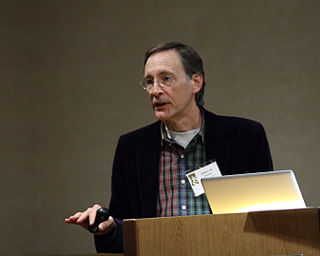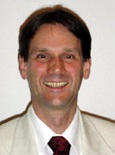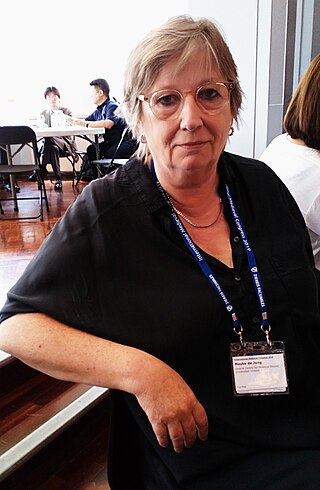Life
Frank N. Pieke studied cultural anthropology and Chinese studies at the University of Amsterdam and the University of California, Berkeley, where he received his PhD in cultural anthropology in 1992. [1]
From 1995 to 2010, Pieke taught Modern Politics and Society of China at St Cross College, University of Oxford. He was the founding director of the Oxford China Centre from 2007 to 2010. [2] In 2010 he was appointed as the chair professor of Modern China Studies at Leiden University in the Netherlands. From 2016 to 2017, he served as academic director of the Leiden University Institute of Area Studies. He was also the director of the LeidenAsiaCentre from 2013 to 2018. [3]
On May 24, 2018, Stiftung Mercator announced that Frank N. Pieke would become the new director of the MERICS in Berlin. Pieke assumed his position on August 1, 2018 [4] but left again before the end of his term after less than two years.

A geographer is a physical scientist, social scientist or humanist whose area of study is geography, the study of Earth's natural environment and human society, including how society and nature interacts. The Greek prefix "geo" means "earth" and the Greek suffix, "graphy", meaning "description", so a geographer is someone who studies the earth. The word "geography" is a Middle French word that is believed to have been first used in 1540.

Arjun Appadurai is an Indian-American anthropologist recognized as a major theorist in globalization studies. In his anthropological work, he discusses the importance of the modernity of nation-states and globalization. He is the former University of Chicago professor of anthropology and South Asian Languages and Civilizations, Humanities Dean of the University of Chicago, director of the city center and globalization at Yale University, and the Education and Human Development Studies professor at NYU Steinhardt School of Culture.
Arthur Michael Kleinman is an American psychiatrist, social anthropologist and a professor of medical anthropology, psychiatry and global health and social medicine at Harvard University.

Eastern Min or Min Dong is a branch of the Min group of the Chinese languages of China. The prestige form and most commonly cited representative form is the Fuzhou dialect, the speech of the capital of Fujian.
William A. Foley is an American linguist and professor at Columbia University. He previously worked at the University of Sydney. He specializes in Papuan and Austronesian languages. Foley developed Role and Reference Grammar in a partnership with Robert Van Valin.
Steven Mitchell Nadler is an American academic and philosopher specializing in 17th-century philosophy. He is Vilas Research Professor and the William H. Hay II Professor of Philosophy, and was Max and Frieda Weinstein-Bascom Professor of Jewish Studies at the University of Wisconsin–Madison. He is also director of their Institute for Research in the Humanities.

Robert Neel Proctor is an American historian of science and Professor of the History of Science at Stanford University, where he is also Professor by courtesy of Pulmonary Medicine. While a professor of the history of science at Pennsylvania State University in 1999, he became the first historian to testify against the tobacco industry.
Stefan Th. Gries is (full) professor of linguistics in the Department of Linguistics at the University of California, Santa Barbara (UCSB), Honorary Liebig-Professor of the Justus-Liebig-Universität Giessen, and since 1 April 2018 also Chair of English Linguistics at the Justus-Liebig-Universität Giessen.
Peter van der Veer is a Dutch academic who is the Director at the Max Planck Institute for the Study of Religious and Ethnic Diversity in Göttingen in Germany. He has taught anthropology at the Free University of Amsterdam, Utrecht University and the University of Pennsylvania. Van der Veer works on religion and nationalism in Asia and Europe.

Leonard Blussé van Oud Alblas is a Dutch historian concerned with the field of Asian-European relations. Blussé has authored, co-authored or edited more than twenty books since 2000. He is the founder of the journal Itinerario and initiated the Crayenborgh College guest lecture series which was the first honours class in a Dutch University. He was elected a member of Academia Europaea in 2010.

Christoph Wulf is a German professor of Anthropology and Education at the Free University of Berlin.
Albert Herrmann was a German archaeologist and geographer. His specialty was the geography of the ancient Mediterranean and Chinese geography. He also published a number of works theorizing on the location of Atlantis.

China Executive Leadership Academy in Pudong is a Chinese Communist Party (CCP) cadre school located in Pudong, Shanghai. The school, considered to be among the top four party schools in China, opened in late 2005.

Sebastian Heilmann is a German political scientist and sinologist. He serves as the founding president of the Mercator Institute for China Studies (MERICS) in Berlin. Heilmann is a professor for the political economy of China at the University of Trier with many publications on China's political system, economic policy and international relations.
A state-owned enterpriseof China is a legal entity that undertakes commercial activities on behalf of an owner government.

Christoph Scherrer is a German economist and political scientist. Currently, he is a professor of globalization and politics and Executive Director of the International Center for Development and Decent Work at the University of Kassel.
Dagmar Schäfer is a German sinologist and historian of science. She is director of Department III, Artifacts, Action, Knowledge at the Max Planck Institute for the History of Science, Berlin. She is honorary professor for the history of technology, Technical University, Berlin; adjunct professor, Institute of Sinology, Freie Universität, Berlin, and Tianjin University (2018–2021). She was previously a guest professor at the school of history and culture of science, Shanghai Jiao Tong University. She was also the director of the Centre for Chinese Studies and held the professorial chair of Chinese studies, both at the University of Manchester.

The Mercator Institute for China Studies (MERICS) is a nonprofit German think tank with a focus on China founded in 2013 by Stiftung Mercator, a private foundation in Germany. The institute’s focus is on political, economic, social, technological and ecological developments in China and their global impacts.

Mayke de Jong is a Dutch historian and Professor Emerita of Medieval History at Utrecht University. Her research focuses on the political and religious history of the early Middle Ages.










